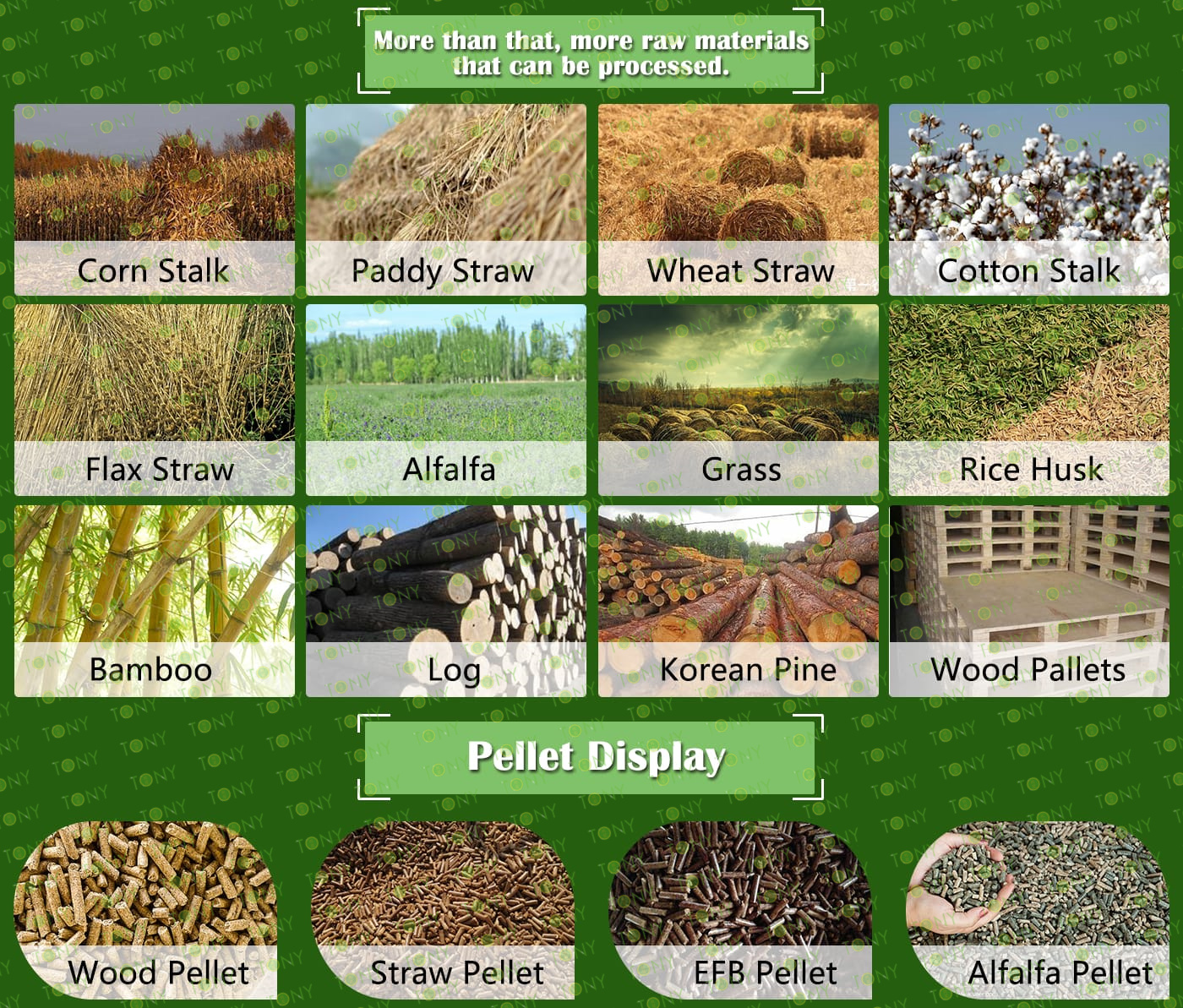Raw materials are an important factor influencing biomass pellets, mainly including four aspects: the type of raw materials, moisture content, ash content and size.
1: Types of raw materials
Biomass pellet fuel mainly utilizes agricultural residues and forestry waste, which are processed into solid cylindrical pellet fuel by biomass pellet machine. According to different raw materials, it can be classified into types such as wood chip pellets, straw pellets, peanut shell pellets, rice husk pellets, EFB pellets, and Afalfa pellets.
According to the quality of different raw materials, various biomass pellet fuels are processed. The type of raw materials determines the calorific value of the produced biomass pellet fuel. Some boilers need to burn those with a higher calorific value, while others do not need to burn those with a calorific value as high as that of pure wood chips.
2: Moisture content of raw materials
When processing pellets with a biomass pellet machine, there are strict requirements for moisture content. Neither too high nor too low moisture content is acceptable. Therefore, when purchasing raw materials, regardless of the type of raw materials you are making, it is recommended to control the moisture content between 10% and 15%. If the moisture content is too low, the shape after extrusion will be poor; if it is too high, it is prone to disintegration and failure to form.

3: Ash content of raw materials
Ash content is a crucial factor in determining the quality of biomass pellet fuel. The level of ash content determines the type of boiler in which the pellet fuel is burned. Therefore, how to control the ash content of raw materials is also a key point that every biomass pellet fuel manufacturer focuses on. Generally, the ash content of pine wood pellets is controlled at around 2%, that of miscellaneous wood pellets at around 5%, and that of larch pellets within 1%. The ash content of peanut shell particles is about 12%, and that of rice husk particles is about 15%.
4: The size of the raw materials
The size of the raw materials determines the fuel processing procedure of the biomass pellet machine. If it is sawdust, wood shavings, peanut shells, rice husks, etc., they can be processed into pellets directly without crushing. However, larger raw materials such as scraps need to be crushed before processing.
TONY has 20 years of experience in mechanical processing and is a production and sales manufacturer. Longer warranty period and more timely service. Choosing a trustworthy biomass pellet manufacturer is a very important matter, as it directly affects the quality, usage and after-sales service of the purchased equipment. When choosing a biomass pellet machine, it is recommended that you compare several options. TONY is worthy of your trust!





















